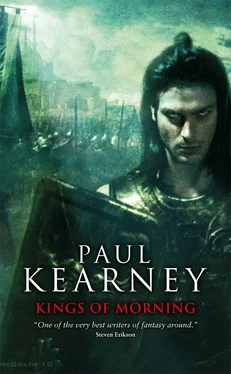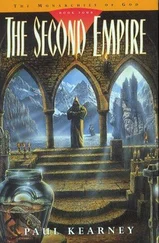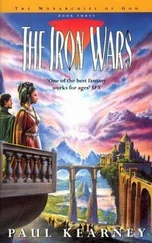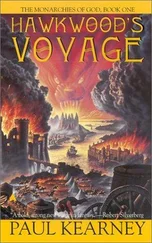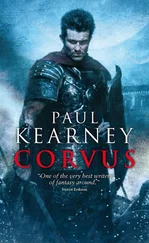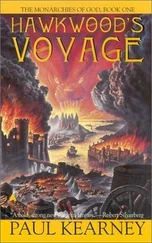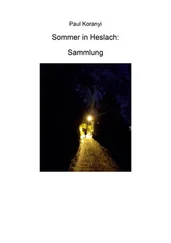Paul Kearney - Kings of Morning
Здесь есть возможность читать онлайн «Paul Kearney - Kings of Morning» весь текст электронной книги совершенно бесплатно (целиком полную версию без сокращений). В некоторых случаях можно слушать аудио, скачать через торрент в формате fb2 и присутствует краткое содержание. Жанр: Фэнтези, на английском языке. Описание произведения, (предисловие) а так же отзывы посетителей доступны на портале библиотеки ЛибКат.
- Название:Kings of Morning
- Автор:
- Жанр:
- Год:неизвестен
- ISBN:нет данных
- Рейтинг книги:4 / 5. Голосов: 1
-
Избранное:Добавить в избранное
- Отзывы:
-
Ваша оценка:
- 80
- 1
- 2
- 3
- 4
- 5
Kings of Morning: краткое содержание, описание и аннотация
Предлагаем к чтению аннотацию, описание, краткое содержание или предисловие (зависит от того, что написал сам автор книги «Kings of Morning»). Если вы не нашли необходимую информацию о книге — напишите в комментариях, мы постараемся отыскать её.
Kings of Morning — читать онлайн бесплатно полную книгу (весь текст) целиком
Ниже представлен текст книги, разбитый по страницам. Система сохранения места последней прочитанной страницы, позволяет с удобством читать онлайн бесплатно книгу «Kings of Morning», без необходимости каждый раз заново искать на чём Вы остановились. Поставьте закладку, и сможете в любой момент перейти на страницу, на которой закончили чтение.
Интервал:
Закладка:
‘So many,’ Roshana said. She was gripping her komis close to her mouth in one white-knuckled little fist. ‘How can there be so many? They must have been defeated, Kurun. They are screaming in their thousands.’
‘If they lost, then what of us?’ Kurun asked.
‘If they won, what of us?’
‘I do not want the Macht to win, mistress.’
‘Nor do I. But I hope Kouros was in the battle. I hope he died. I hope Corvus killed him.’
Kurun looked at the slight, crop-headed girl with the blazing eyes, and then he looked back down at the waggon-park and the field hospitals with a sigh.
‘It is too big for me. I only know that I want to live. And I want you to live. There is nothing else.’
Roshana took his hand. ‘There is still vengeance.’
‘It is not for a slave to seek. He merely endures.’
‘Not you — you are no slave. Not to me.’
Kurun said nothing. He knew better than to speak.
They could not sleep that night for the screaming; neither of them had ever heard anything like it. They sat wrapped in a single blanket and occasionally Kurun would scour the surroundings for scraps of wood to keep the fire going. But it was burnt down to a glowing nub by the time the solitary figure walked towards them up the slope from the waggons below. By that hour, many thousands of men had already returned to the camp, not just wounded, but infantry marching in cadence, in silence, shrouded by the ochre dust. And lines of limping horses too lame to bear a rider.
The shadow came into the last red light of their fire and they saw that it was a Kefre, a tall man of some breeding. He was covered in dust and dried blood and he moved with the slow careful steps of the very old and the very tired.
‘My name is Ardashir,’ he said to Roshana and Kurun, and the fire lit up a friendly smile in his haggard face. ‘May I join you?’
He sat down without answer, though it was closer to a fall. Elbows on knees, he stared at the sullen coals and his eyes blinked slowly as though sleep was a precipice and he was on the very edge.
But he collected himself. ‘The King sent me to see how you were faring, and to ask if there was anything you need. He apologises for not coming in person, but he… he had things to attend to that will not wait.’ Here Ardashir licked his dry lips and pointed out across the plain to the east. There were lights out there in the black desert, moving torches, an impression of great activity.
‘I am to bring you to a ceremony.’ The words staggered from his tongue. Kurun offered the Kefre a waterskin and he smiled, and squeezed one swallow after another into his mouth until the liquid was brimming over and running down his neck. It carved tracks in the dust coating his skin.
‘Ah, my thanks. I was beginning to wilt.’
‘Who won the battle?’ Roshana asked him in a low tone.
‘We did, lady. The army of the Great King has been shattered and is in rout along every eastern road for forty pasangs.’
Roshana’s mouth opened. But Ardashir had not finished.
‘The Great King is dead. He died fighting, like a brave man. I am to bring you to his funeral with the coming of the dawn. My condolences, lady. King Corvus would not have had it so. He would have taken your father alive had he been able, and treated him with honour. As it is, we have built a pyre worthy of him. It is lit at dawn. That is why I am here.’
He turned his head to look at Roshana. ‘You were not close to your father.’
‘He had many children. He barely knew most of them.’ The shock of the news was cold upon them both. Kurun tucked his face into his knees and began to weep, not knowing why. For the death of a world he had known, perhaps. Nothing could be brought back now, any more than his own body could be made whole again.
‘What of the crown prince?’ Roshana asked. ‘What of Kouros?’
Ardashir frowned. ‘We captured no nobles. They are either dead or fled. Lady, on the plain of Gaugamesh east of here the bodies lie like a carpet for pasangs. Many thousands died today; we have barely begun to count them, let alone know who they were. This Kouros may be alive, he may be dead. There will be no way of knowing.’
Roshana nodded. She bent her forehead into Kurun’s shoulder. Her own tears came now, silent. She, too, was weeping for she knew not what. For a father who had barely ever spoken to her? Or for the loss of that world which Kurun wept for also. For the brother who had disappeared with it.
Ardashir hauled himself to his feet. He rubbed his hand over his face, grimacing as the palm came away black. ‘It is time, lady,’ he said with the gentleness peculiar to him. ‘We must leave now. There is a cart waiting to take you.’
Roshana looked up at him, like some beautiful lost beggar-child. ‘I will come. I’m ready.’
The pyre was some thirty feet high, made of broken waggons, shattered spears and wizened trees felled from the scrub-scattered plain. The Great King’s chariot had been hauled to the top of it, and his body was laid out upon its shattered frame, braced on a wooden bier. He had been wrapped in the red cloaks of the Macht infantry, and above his head the royal standard of Asuria flew, tattered and bloodstained, but catching the wind so that the rags spread like the pinions of a dark bird.
As the dawn light touched the standard, so Corvus stepped forward, bearing a lit torch which glared bright in the morning-dark.
The pyre caught quickly, the flames streaming along the base and reaching up as the wind fanned them. Soon the whole pyre was alight and roaring, and the sunrise lit it brighter still, and cast long shadows across the plain.
Many thousands had gathered there to see the pyre of a Great King. They stood filthy, grimed and bloody, but in perfect ranks and complete silence as the tall pyre began to collapse in on itself, the chariot at its top sinking into the embers below with a fantail of sparks, the Asurian standard itself catching light at the end and streaming away in one last bright flammifer.
Other mounds were then lit. All around the King’s pyre they stood in gruesome piles, stacked high with anything flammable that could be found on or near the battlefield. Even sheaves of arrows had been stacked about the corpses of the Macht.
They were kindled one by one, and the Great King’s pyre had the company of half a dozen others as large, but containing hundreds of bodies. The black smoke rose as the dawn light waxed and the red tint left the eastern sky. The soldiers trooped back to their camp, and behind them the pyres burned down to ash which the west wind took and blew across the earth in a grey mist, towards the peaks of the Magron Mountains.
For three days, the Macht policed the great battlefield, searching for those that still lived, collecting the dead and burning them in yet more pyres, collecting a mountain of armour and weapons and other equipment which had been abandoned on the field. But only a tithe of them remained there to do this. Most of the army was already on the march eastwards again, the Companions in the forefront, harrying the survivors of the battle and travelling east among panic-stricken mobs of levy-soldiers who wanted nothing more, now, than to get back to their farms and their homes and their families. These were ignored; they were no longer any threat to the advance.
The prize in this race was the city of Carchanis, the great citadel that guarded the crossings of the Bekai River and which had been used by the Great King as his base of operations. The lead troops of the Macht came within sight of the city four days after the battle, and at once sent word to its governor to surrender, or face assault and siege with no quarter given.
It was a bluff. The army was not yet in any condition to assault or besiege so much as a hamlet. Parmenios’s siege equipment was still back at the waggon-park, and the men and animals of Corvus’s army had been pushed to the limits of their endurance.
Читать дальшеИнтервал:
Закладка:
Похожие книги на «Kings of Morning»
Представляем Вашему вниманию похожие книги на «Kings of Morning» списком для выбора. Мы отобрали схожую по названию и смыслу литературу в надежде предоставить читателям больше вариантов отыскать новые, интересные, ещё непрочитанные произведения.
Обсуждение, отзывы о книге «Kings of Morning» и просто собственные мнения читателей. Оставьте ваши комментарии, напишите, что Вы думаете о произведении, его смысле или главных героях. Укажите что конкретно понравилось, а что нет, и почему Вы так считаете.
